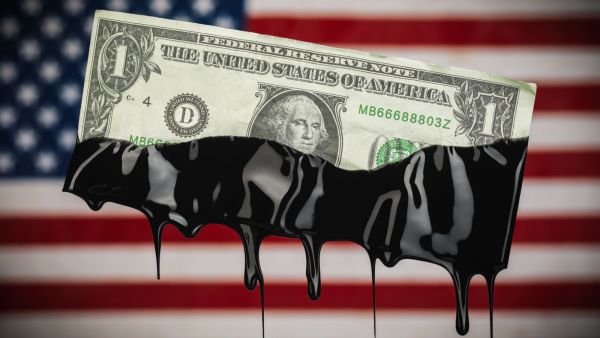ALBAWABA – Oil prices rose more than 1 percent Thursday as the dollar slid after the United States (US) Federal Reserve (Fed) announced pinning the benchmark US interest rate late Wednesday.
Brent crude futures rose $1.28 to $85.91 a barrel by 0944 GMT, according to Reuters, and US West Texas Intermediate (WTI) crude futures gained $1.33, settling at $81.77 a barrel.
On Wednesday, the Fed decided to keep the benchmark US interest rate unchanged at 5.25-5.50%, bolstering oil prices at the expense of the US dollar.
Bloomberg’s US dollar index showed the greenback down 0.68 percent at 106.1570 on Thursday.
Recent escalations in the Middle East over the Israeli onslaught on Gaza, with the Houthis in Yemen stepping in, have also bolstered oil prices.
Combined, worries that the conflict in occupied Palestine would spiral into a regional war and the Fed pinning US interest rates have overshadowed demand concerns in Europe and China.

Oil prices are affected by monetary policy and currency strength, namely the dollar and the US interest rate, and demand prospects worldwide - Shutterstock
China’s PMI also fell in October, despite resilient export data, as a contraction in manufacturing activity in the Eurozone deepened in October.
The Eurozone’s Purchasing Managers' Index (PMI) fell by 0.3 points on the month to 43.1, as China’s slipped to 49.5.
Notably, a score of below 50 signals contraction, which is reason enough to worry when it’s pointing to the world’s second- and third-largest economies.
As of 2022, official data, provided by YCHarts, shows the EU as the world’s third-largest oil consumer, right after the US and China, and the world’s top importer, at 14.4 million barrels per day, according to Statista.
Needless to say, a dip in factory activity in the world's largest and second-largest oil importers’ economies would significantly weigh on oil prices.
Yet, so far, fear of the onslaught on Gaza igniting a conflict that would disrupt supplies from the crude-rich Middle East, and the weaker dollar, seem to have outweighed demand concerns for now.









